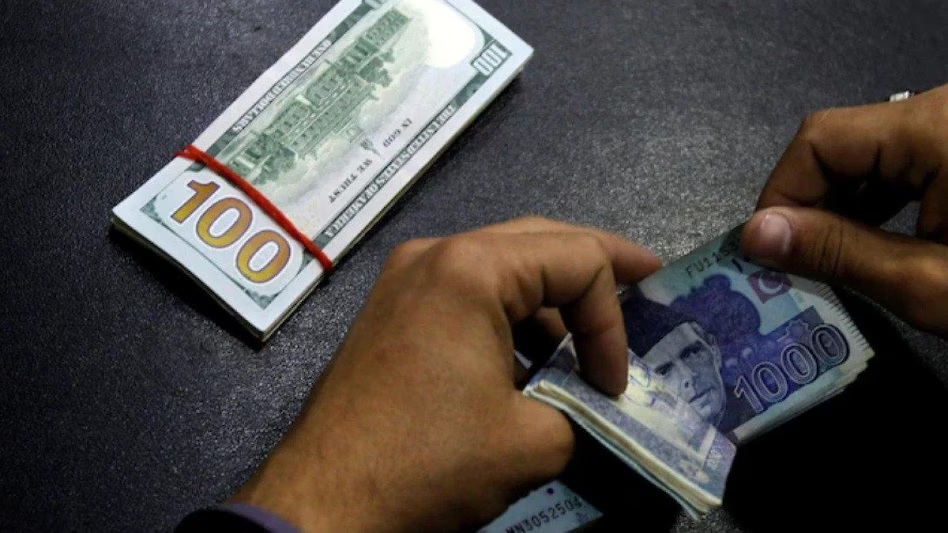Saudi Arabia is not as magnanimous to Pakistan as it used to be in the past. Those days are gone when it was quick to come to the aid of needy Pakistan. But Pakistan's erratic and unreliable behaviour towards the kingdom in the Islamic world has forced a rethink on the part of the rulers, The Pak Military Monitor reported, adding that now, the days of blank cheque relationships are over. There has been a strategic shift in Riyadh's policies and is increasingly attaching conditions to such aid, insisting on economic overhauls like cutting subsidies and privatizing state-owned companies.
Even if Pakistan wins Saudi Arabian support for the resumption of its IMF programme, it will only be a temporary respite. The truth is that Pakistan will not be able to secure any major package of economic support from Saudi Arabia today or in the foreseeable future because the model for such blanket support simply does not exist anymore, The Pak Military Monitor reported. Saudi Arabia, while maintaining very strong ties with Pakistan, simply does not have the patience with Pakistan's elites (military and civilian) to convert those fraternal ties into unconditional bailouts.
Pakistan's military and civilian leaders continue to visit Riyadh and repeat their request for a bailout. Still, the absence of the traditional blank cheque should have forewarned Pakistan that the new Saudi Arabia thinks and acts differently under Crown Prince Mohammed Bin Salman (MBS) who makes the decisions, the report stated further. More importantly, it is the inability of the Pakistan state to capitalise on the roots of the fraternal ties and this is costing them dear. By viewing Saudi Arabia through a lens of the past, Pakistan finds it difficult to grasp the idea and vision of the new Kingdom that is taking shape under MBS, the report noted.
The MBS Vision 2030 aims to transform Saudi Arabia and works on the principle that one needs to dispense with tradition that doesn't work. That is what has led to MBS taking a series of bold decisions. These ranged from economic disinvestment of state-owned enterprises to lifting the ban on women driving motor vehicles, The Pak Military Monitor reported. In 2019, Saudi Aramco went public, raising USD 29.4 billion in a single day for a mere two per cent of the company's ownership stock. In 2022, another four per cent was transferred, then worth USD 80 billion to the Public Investment Fund (PIF). The rapid changes have produced eye-popping results.
Saudi Aramco posted a profit of USD 161 billion last year, with nearly USD 20 billion in cash dividends being awarded to the shareholders (two per cent) and Public Investment Fund (four per cent). Vision 2030 is about diversifying Saudi Arabia's economy away from oil and advancing Saudi interests by leveraging its cultural and religious centrality to the Arab and Muslim world. This also involves using the power of its financial wherewithal to diversify and expand its economic capability, and strategic location as a hub for connectivity between Europe, Africa and Asia, the report stated further.
The world's largest crude oil exporter, Saudi Arabia, ended the year 2022 with a USD 28 billion budget surplus after Russia's invasion of Ukraine pushed up oil prices, sending profits flooding to producers. Despite that windfall, Saudi officials say they are tired of doling out endless aid to poorer states like Egypt, Pakistan, and Lebanon only to watch it evaporate. As the New York Times reported, the Saudi government has adopted the IMF model of aid and assistance, which gives it even greater sway than before over regional politics, with larger nations like Pakistan.
The message was given out loud and clear at Davos in January this year, by the Saudi Finance Minister Mohammed al-Jadaan, who said, "We used to give direct grants and deposits without strings attached. And we are changing that. We are working with multilateral institutions to actually say, 'We need to see reform'." In February 2019, MBS visited Pakistan. Pakistan announced USD 10 billion of Saudi Arabian money as a possible investment. That figure has since been repeated on numerous occasions and yet none of it seems to have materialised, The Pak Military Monitor reported.
While it is clear that Saudi Arabia has changed the way it provides aid to its friends, the real reason for the lack of progress is that Pakistan has repeatedly failed to provide even the very basic paperwork and due diligence required to close divestments of some of the state-owned assets under discussion. Greenfield investments like an oil refinery are much more complex. There also remain basic challenges like protection under the law, land acquisition, and political stability, which hinder any real progress. Pakistan has neither the bureaucratic capability, nor the decisive national leadership to allow for investments from Saudi Arabia (or for that matter from the UAE or Qatar) to materialize, The Pak Military Monitor reported.
Meanwhile, Saudi support for Pakistan continues to be available, but with strings attached. Saudi Arabia is a much more ambitious and globally competitive nation than before. Pakistan may manage to get its bailout once in a while, but in the long run, this will actually erode the quality of fraternal relations between the two countries. Recent developments in the Middle East focused on the thawing of Iran-Saudi ties and it should be seen as a function of the new Saudi Arabia that is preparing to launch itself in regional and global affairs much more stridently than before.
Pakistan is today in dire straits and they are unable to think straight. Their establishment and bureaucracy still think and act like a medieval-era government and is unable to grasp the rapid changes taking place globally, more particularly, in Saudi Arabia.


